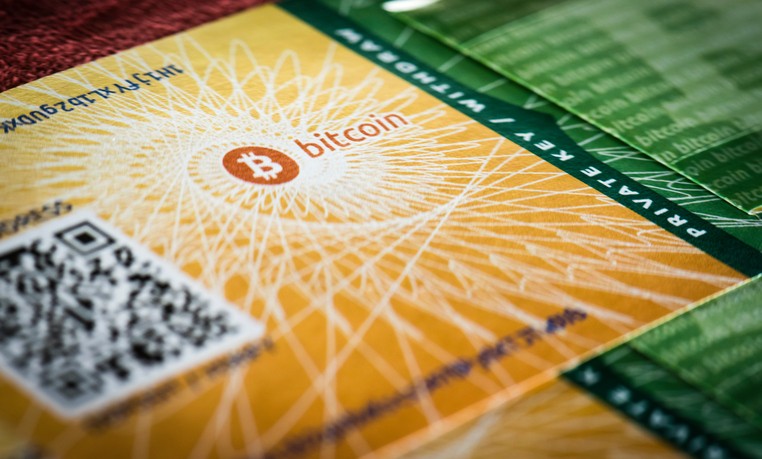Between November 2016 and November 2017, Bitcoin saw its market-cap increase by 1,034% to a record breaking value of $128,982,906,067 on coinmarketcap.com. November 2017 also saw Bitcoin hit a new all-time high against the British pound and US dollar, with xe.com valuing a single bitcoin at £5,889.18 and $7,720.66 respectively.
With bitcoin’s market expanding, value increasing, and its near-global adoption favoured for its decentralised system, it’s no wonder that more people are looking to earn, spend, and even gamble with the cryptocurrency.
Why use Bitcoin?
According to FortuneJack, the biggest online Bitcoin gambling casino, there are many reasons why businesses and individuals use bitcoin; these include:
Privacy and Security
Unlike online purchases using credit cards, which require you to input all your secret information, bitcoin works on a public and private key system. Not only does this make the transaction more secure but also means you are the only one with access to your bitcoin wallet.
It isn’t inflationary
Unlike traditional ‘fiat’ currencies, which are run by central banks, bitcoin is not susceptible to inflation or quantified easing due to the limit of just 21 million ever being created.
Speed
Because it’s an entirely digital currency, bitcoin deposits and withdrawals are exceptionally fast and processed without delay, as opposed to traditional banking methods where a bank or transfer service will hold onto the money for several days.
Ways to earn Bitcoin
Unlike standard currencies which have their value and number determined by central banks, bitcoin can be earned through a couple of methods:
Mining
The most popular and even encouraged form of earning bitcoin, mining involves using your computer to add transactions to the public bitcoin ledger called the blockchain.
Earning
Whether by accepting bitcoins for freelance work or at your business, you can accept bitcoin as a payment method to begin building up your balance.
How to spend it
Every day, new ways of spending bitcoin are being created. To date, bitcoin can be used in and on:
– Online e-commerce sites
– Physical Stores
– Travel and Property
– Bars and Restaurants
– Online Gambling
– Bullion Trading
– Online Auctions
– Buying Services
Other ways to spend Bitcoin include:
Payment cards
Coinbase launched the Shift debit card, which consumers spend bitcoin anywhere that merchants accept cards, while pulling Bitcoin from their Coinbase account. Allowing suppliers and customers to spend at over 38 million merchants worldwide through using their Visa cards.
Gift cards
Some bitcoin users exchange their currency for gift cards from service providers like eGifter, or Giftoff, which allows consumers use 15 cryptocurrencies to buy gift cards from up to 177 retailers.
Gaming
Companies like Microsoft have recently started offering games and other apps for bitcoin, with a Minecraft server even using bitcoin as its in-game currency system.
The global impact of Bitcoin
In 2016, bitcoin gained 126.2% against the US dollar, compared to just a 21.7% increase for the world’s next best-performing currency, the Brazilian Real.
The Netherlands has been quick to adapt to the widespread popularity of bitcoin. Arnhem, a large city in the east of the Netherlands, has been labelled as ‘the world’s most bitcoin-friendly city’, by a local group running the arnhembitcoinstad.nl website, and the Netherlands’ best department store accepts bitcoin.
In Japan, retailers are staying ahead of the development of virtual currencies by accepting bitcoin.
Cities and businesses accepting Bitcoin
| City | Number of shops |
| Los Angeles | 127 |
| New York | 120 |
| Buenos Aires | 111 |
| San Francisco | 108 |
| London | 86 |
| Madrid | 82 |
| Kansas City | 68 |
| Toronto | 64 |
| Melbourne | 63 |
| Athens | 52 |
| Sao Paulo | 49 |
| Tokyo | 48 |
| Amsterdam | 46 |
| Tel Aviv | 42 |
Source CoinMap
Conclusion
As Bitcoin and other cryptocurrencies become more prevalent and profitable, we are likely to see more multinational and large businesses integrating Bitcoin into the payment options for themselves and suppliers.
Bitcoin users and regular consumers are also realising that Bitcoin can be used to pay for real life services and tangible products, with the two-key system and anonymity providing an additional level of security to their transactions.

